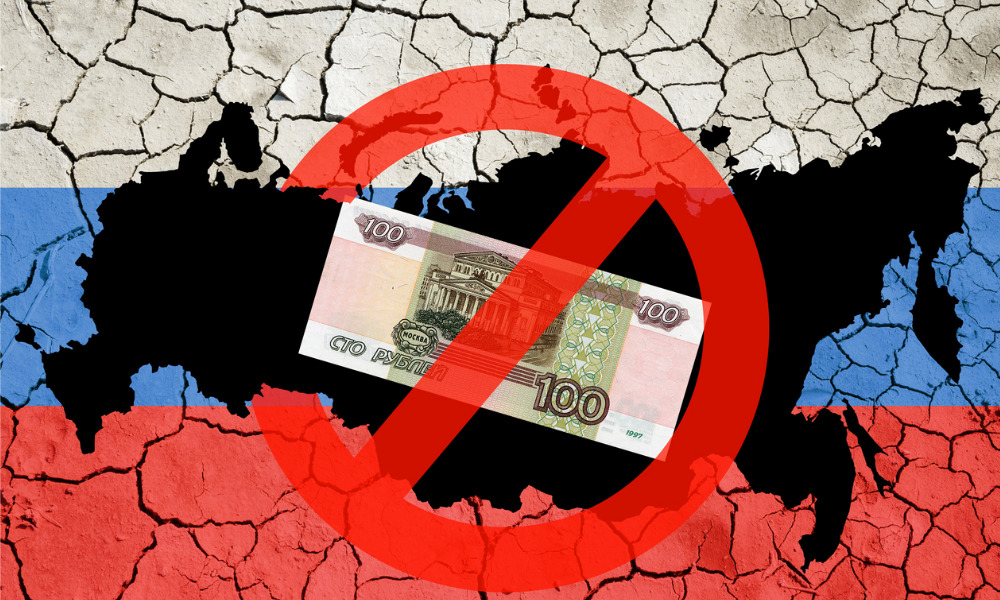Canadian authorities have blocked teacher wages, retirement funds, and 'funeral money'

Canadians without any connections to President Vladimir Putin or his regime still feel frustrated and anxious more than 13 months after the invasion of Ukraine as salaries earned abroad, retirement investments, and even savings for funerals are among the assets caught in Canada's sanctions net.
CBC News reports that as political upheaval broke out in Kazakhstan and Russia invaded Ukraine, English teachers like Ingrid Morton and her husband Graham decided to depart before their contracts were up. They had been travelling the world while teaching English at various schools.
While the Morton family lives in Toronto, their school paid the salaries of its foreign instructors into accounts with Sberbank Kazakhstan. Even though Sberbank Kazakhstan had restructured to escape international sanctions, Ingrid moved money from the Sberbank branch close to their school to a CIBC office in Canada last year.
On March 1, 2022, one week after Canada imposed sanctions on a number of Russian organizations, Ingrid transferred the couple's money. The time it took for previous transfers to Canada to appear in their Canadian account was only a few days, but not for this one.
Ingrid thinks the reason a $10,000 transfer was blocked by the Canadian government was the bank, not her employer. She joined a long line of people waiting for a permit to release the money, placing a pressure on Foreign Affairs Canada's ability to do due diligence and provide exemptions.
Since becoming a Canadian citizen in 2015, Angelina Ermakov's mother has been able to accumulate enough money in a Russian bank branch for her burial. Ermakov eventually persuaded her mother to wire the money to her Canadian bank account, but it was not completed before sanctions regulations took effect.
No one in their family is connected to the Putin government, she said, adding that she wonders whether her transfer was targeted due to her mother's Russian surname.
"[This is] not blood money, or money supporting the war," said Ermakov, who has lived in Canada since 1990. "We do not support the war because we already made that decision to leave Russia and to come and live in a different country."
The funds are being kept until GAC approves their release, Ermakov verified with RBC. She finds it difficult to think the agency is too busy to rapidly handle her mother's application because she works for the federal government.
In 2015, Derek Nickerson and his wife opened US dollar accounts with ArmSwissBank, an Armenian bank. They sent $35,000 USD to an RBC account in March of last year, but on March 22 the funds vanished. When he called RBC, they informed him that the funds had passed via Alfa Bank, a correspondent bank in Russia that is included on Canada's sanctions list.
"That's our retirement money," he said.
According to CBC, after the invasion of Ukraine, Canadian officials have reportedly blocked hundreds of similar cases. One individual who talked to CBC News earlier this winter finally had access to her family's funds last month. Since December, the RCMP has not significantly altered how much money has been frozen and what transactions have been stopped as per Canada's Special Economic Measures Act.
In response to specific CBC inquiries on the department's backlog in processing exemption requests, Grantly Franklin, a media spokesman for the department, wrote, "Canada is judicious in its approach to deploying sanctions and we are committed to their effective and coordinated use."
The federal government added $76 million to the administration of sanctions in October. Franklin stated that, "Global Affairs Canada will use its portion of this investment to increase the capacity of the sanctions policy and coordination team."
"Our sanctions aim to apply pressure on foreign actors, not on Canadians."



